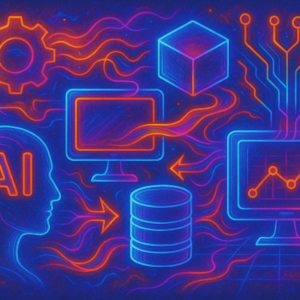DevOps consulting services
DevOps consulting company | DevOps services company | Cloud DevOps consulting services
DevOps Consulting and Services

Afraid Too Many Software Releases Will Go Wrong?
The real issue isn’t your team—it’s how your DevOps systems are set up. Broken CI/CD pipelines, poor automation, and fragmented cloud infrastructure are the bottlenecks that slow everything down.
That’s where our DevOps consulting services come in. We start by analyzing your setup to identify what’s causing delays—whether it’s misconfigured pipelines, security gaps, or inefficient workflows. Then, we pinpoint opportunities to automate processes, ensuring your DevOps system is ready for scale and agility.
We leverage Docker to package applications, Kubernetes for scaling and failover management, and Terraform to automate infrastructure, ensuring smooth, error-free deployments. With real-time monitoring tools like Prometheus and Grafana, we proactively detect CPU spikes, memory leaks, and failing pods before they impact performance or user experience.
The result? 40% faster release cycles, a 30% reduction in cloud costs, and 99.9% system uptime—keeping you agile, efficient, and ahead in today’s fast-paced digital world.

Automate where it matters: That’s the Codewave Edge.
80%
Lesser Deployment Errors.
MTTR
Recovery in less than 15 minutes.
75%
Lesser Manual Effort
Download The Master Guide For Building Delightful, Sticky Apps In 2025.
Build your app like a PRO. Nail everything from that first lightbulb moment to the first million.
Codewave’s DevOps consulting services follow the XHub approach—eXecution, High Availability, Uninterrupted Delivery, and Bulletproof Security—for reliable and robust systems.
In our DevOps consulting, we start by evaluating your current setup. We assess your CI/CD pipelines, identify inefficiencies, and examine automation gaps, all while ensuring your cloud infrastructure and security practices meet industry standards.
Our focus is on the areas holding you back—whether it’s manual processes, slow deployments, or integration issues. Once we identify the pain points, we craft a strategy to simplify workflows, automate where it makes sense, and optimize your infrastructure for better performance and security.
For example, an e-commerce platform managing seasonal traffic surges would benefit from fine-tuning & auto-scaling, to prevent downtimes and optimize resources.
We keep your systems online with failover architectures, automated backups, and real-time incident response. Multi-region deployments eliminate service disruptions, ensuring 99.9% uptime.
Our backup strategy follows the 3-2-1 rule—storing three copies of critical data across two different storage types and one offsite location. Automated failover with Amazon Route 53 reroutes DNS traffic, while Load Balancers quickly shift traffic to backup systems. We also use chaos engineering tools to simulate failures and identify weaknesses before real incidents occur.
For example, a fintech firm can run active-active clusters across AWS regions. If a primary node fails, traffic is instantly rerouted to a backup node, preventing any transaction downtime.
We help your teams adopt DevOps best practices through hands-on training and process optimization. Our experts guide you through CI/CD implementation, Infrastructure as Code (IaC) adoption, and setting up observability—ensuring consistent deployments, version-controlled infrastructure, and real-time monitoring.
Custom deployment playbooks define rollback strategies, branching models, and environment configurations. With GitOps workflows powered by ArgoCD, we enforce declarative infrastructure updates, minimizing configuration drift. Additionally, we run live incident response drills to train your teams to handle failed deployments, security threats, and performance issues without downtime.
For example, an enterprise IT team can standardize deployments across multiple environments, eliminating manual configurations, speeding up releases, and ensuring quick rollback to a stable version in case of failure.
Our CI/CD pipeline automation accelerates software delivery while reducing risks—deployment failures, security vulnerabilities, configuration errors, and system downtimes. We use Jenkins to automate builds, GitLab CI for continuous integration, and ArgoCD for GitOps-based deployments—ensuring faster, secure, and error-free releases.
GitLab CI enforces security policies, blocking vulnerable code before deployment. Parallel testing accelerates validation cycles and blue-green deployments shift live traffic only after system health checks pass. Docker containers maintain consistency across development, staging, and production.
Think of a ride-sharing app—bug fixes and new features roll out multiple times daily without interruptions. Users get updates instantly; if something breaks, the system rolls back without anyone noticing.
In DevOps, reliable, automatically scaling cloud infrastructure is critical for continuous integration and delivery. We automate cloud management with AWS Auto Scaling, ensuring your systems are optimized and monitored so your team can focus on development without performance concerns. We automate infrastructure provisioning with AWS CloudFormation, and track system health using Azure Monitor.
Auto-scaling provisions and deallocates instances based on demand, preventing latency and over-provisioning. Immutable infrastructure replaces manual configurations with fresh deployments, reducing drift and misconfigurations. Monitoring tools detect anomalies, trigger automated recovery, and log metrics for system diagnostics.
For example, a global SaaS platform automatically scales computing resources during peak traffic. Auto-scaling provisions instances in real time, while monitoring tools quickly detect and mitigate failures, ensuring high uptime without the need for over-provisioning.
Running containerized applications requires precise resource allocation and fault tolerance. That’s why we use Docker and Kubernetes to handle auto-scaling, self-healing, and resource optimization. Cluster monitoring keeps workloads stable, Istio secures communication between microservices, protecting your business-critical data from vulnerabilities.
This means fewer service disruptions, optimized resource usage, and seamless scaling of containerized workloads—keeping applications responsive even under high demand. Canary releases for microservices help, too, by gradually rolling out updates to a subset of users before full deployment, reducing the risk of failures.
For example, a SaaS company deploying microservices can release new versions seamlessly, without disrupting active users. Workloads automatically scale based on traffic, ensuring stable performance even during peak usage.
Your infrastructure stays reliable with Git-based workflows for version control and automated deployments. With Git as the single source of truth, every change is tracked, versioned, and automatically deployed. Declarative configurations keep infrastructure, application settings, and system states consistent, eliminating manual fixes and reducing security risks.
This reduces configuration errors, speeds up software releases, and keeps infrastructure, applications, and services synchronized across all environments. If a deployment fails, automated rollbacks immediately restore the last stable version, preventing downtime. Security policies enforce access controls, vulnerability scans, and compliance checks at every stage.
For example, a logistics company can update fleet tracking across multiple locations without disruptions. Every configuration change is versioned, keeping all systems synchronized in real time.
Detecting anomalies early prevents API failures, slow response times, and resource bottlenecks. We use Prometheus to collect real-time system metrics like CPU usage, memory consumption, and request latency. Grafana visualizes these metrics in live dashboards, helping teams track system health at a glance.
ELK Stack centralizes logs from servers, applications, and network devices, enabling in-depth analysis and faster troubleshooting. This ensures servers, databases, and applications perform at peak without manual log parsing or reactive fixes. Automated alerts detect performance dips, historical logs help identify recurring issues, and visualization tools enable proactive system tuning.
For instance, a healthcare provider can monitor patient data flows across telemedicine platforms. Early issue detection ensures smooth virtual consultations, free from lag or connectivity failures.
We make sure your cloud spending stays cost efficient by cutting waste and optimizing usage. Auto-scaling adjusts compute capacity based on traffic, spot instances use discounted excess cloud capacity, and serverless computing runs code only when needed, reducing idle costs.
Rightsizing selects the best instance types for each workload, while automated shutdown policies turn off idle resources to prevent unnecessary charges. Real-time cost monitoring tracks expenses, detects anomalies, and helps you stay within budget.
For example, a media company can reduce cloud costs by scaling video processing servers up during peak hours and down when demand drops. This ensures efficient resource usage without overpaying.
We ensure your application stays reliable by automating tests at every stage of development. Selenium automates UI testing to catch frontend issues, Jest validates JavaScript code for accurate functionality, and JMeter runs performance tests to check system scalability under heavy loads.
Parallel test execution speeds up validation by running multiple tests simultaneously, reducing wait times. Continuous testing integrates with CI/CD pipelines, providing instant feedback on code changes. Automated security tests scan for vulnerabilities, ensuring compliance with industry standards.
For example, a fintech app can automate security tests on payment gateways, API requests, and authentication flows. This prevents transaction failures and ensures seamless, secure financial operations.
We integrate security into every stage of development with DevSecOps, automating vulnerability scans and compliance checks. OWASP ZAP identifies web security flaws, Snyk scans for vulnerable dependencies, and Aqua Security protects containerized workloads from exploits.
We enforce role-based access controls (RBAC) to restrict unauthorized access. Automated CIS benchmark audits using tools like AWS Security Hub detect misconfigurations and ensure compliance with ISO 27001, HIPAA, and SOC 2. Data encryption, centralized logging, and API security monitoring provide full visibility and prevent breaches.
For example, a healthcare provider can automate HIPAA compliance for cloud storage by encrypting patient data. This prevents unauthorized access while blocking unverified API requests to ensure secure and compliant data access.
Our DevOps Consulting: How We Make It Work?
We optimize your CI/CD pipelines, implement Infrastructure as Code, and automate scaling processes to boost efficiency. With 40% better resource utilization, you eliminate idle capacity, reduce cloud waste, and accelerate deployments. This ensures your infrastructure remains lean, efficient, and always ready for production.
Assessing Your Current Setup
Before making changes, we first understand what’s slowing you down. We use SonarQube to scan your code for security flaws, hardcoded secrets, and inefficient logic. Then, we dig into your deployment logs to catch recurring failures and check if your infrastructure matches what’s in version control. This way, you get a clear, no-fluff roadmap to fix what’s broken and tighten up your system.
Automating Infrastructure with Code
Manual configurations cause errors. We automate your infrastructure using Pulumi, turning everything into version-controlled code. This eliminates inconsistencies and reduces configuration mismatches by 70%, ensuring deployments work the same way—every time.
Fixing CI/CD Bottlenecks
Releases should be fast and reliable, not slow and unpredictable. Our engineers fine-tune your CI/CD pipelines with Tekton, automating builds, tests, and deployments. That means fewer failed releases and more time spent building, not debugging.
Securing Everything by Default
We don’t wait for security issues to appear—we prevent them. With Trivy, we run automated vulnerability scans before deployment. This helps reduce the error rate in production by 50%, so security never slows you down at the last minute.
Making Systems Observable
If you can’t see issues, you can’t fix them. We integrate OpenTelemetry to give you real-time visibility into logs, metrics, and traces. That means no more blind spots—just full control over performance, efficiency, and cost.
Preparing for Failures Before They Happen
Downtime costs money, and we make sure you don’t have to deal with it. Our automated monitoring with PagerDuty detects critical failures within 5 minutes, so your team can respond instantly. Combined with active-active failover setups, this keeps your services running—even when things break.
Think your DevOps could be smarter? You're right.
Tech Stack For DevOps & DevSecOps
We optimize your DevOps with battle-tested tools. 95% of CI/CD pipelines succeed on the first attempt, eliminating deployment failures. Our auto-scaling infrastructure expands in under 30 seconds, ensuring high availability and peak performance—without manual intervention.
| CI/CD Automation |
|
| Infrastructure as Code (IaC) |
|
| Containerization & Orchestration |
|
| Configuration Management |
|
| Monitoring & Observability |
|
| Security & Compliance |
|
| Version Control & GitOps |
|
| Testing & Quality Assurance |
|
| Cloud & Hybrid Environments |
|
| Incident Response & Alerting |
|
DevOps For Every Business, Every Industry
We’ve helped 400+ businesses—from VC-funded startups to enterprises—set up CI/CD, automate infra, and scale on demand.
| Healthcare | Automates deployment of EHR systems, ensuring zero downtime for patient data access. Implements compliance-driven CI/CD pipelines for HIPAA-regulated applications. Example: Continuous monitoring of IoT-enabled patient devices, automated rollback for failed medical software updates. |
| Transportation | Deploys auto-scaling infrastructure for real-time fleet tracking. Implements containerized microservices for ride-hailing and logistics platforms, ensuring 99.9% uptime. Example: Automated deployment of route optimization algorithms, failover mechanisms for airline booking APIs. |
| Energy | Integrates real-time monitoring for SCADA systems, ensuring predictive maintenance. Uses Infrastructure as Code (IaC) for rapid disaster recovery. Example: Automated rollback for failed smart grid updates, real-time telemetry pipeline for wind farm analytics. |
| Retail | Implements low-latency cloud deployments for eCommerce platforms, preventing traffic surges from crashing servers. Uses A/B testing automation for seamless feature rollouts. Example: Auto-scaling checkout systems during sales, version-controlled catalog updates. |
| Insurance | Automates policy management systems with secure CI/CD pipelines. Implements real-time analytics for fraud detection in claims processing. Example: Instant rollback of misconfigured underwriting models, event-driven API orchestration for claim approvals. |
| Agriculture | Deploys edge computing frameworks for precision farming applications. Automates sensor data ingestion pipelines for yield predictions. Example: Real-time weather impact analysis on crops, AI-driven irrigation control updates. |
| Education | Enables scalable LMS deployments with automated testing. Implements DevSecOps for secure student data processing. Example: Auto-provisioning virtual classrooms during peak usage, continuous security compliance checks for exam platforms. |
What to expect working with us.
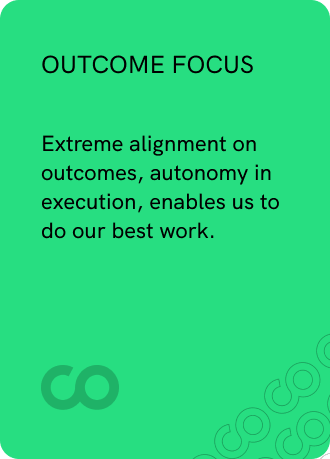


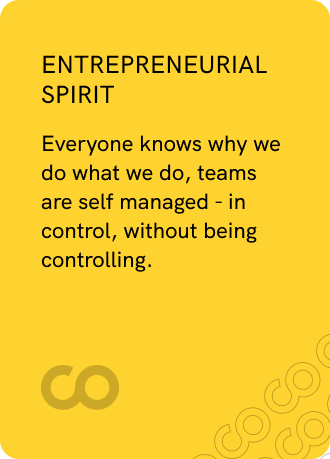
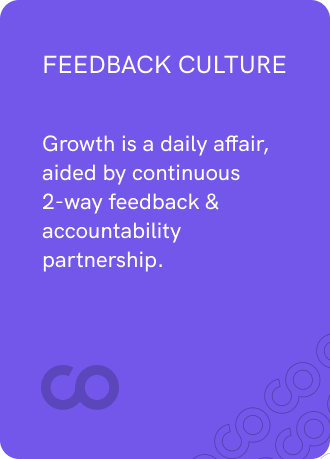
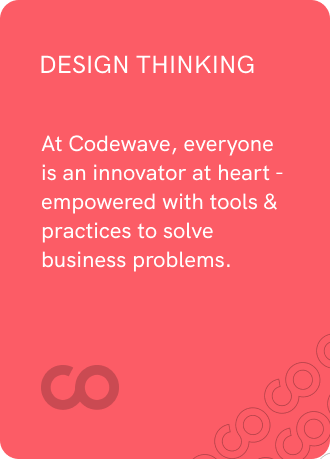
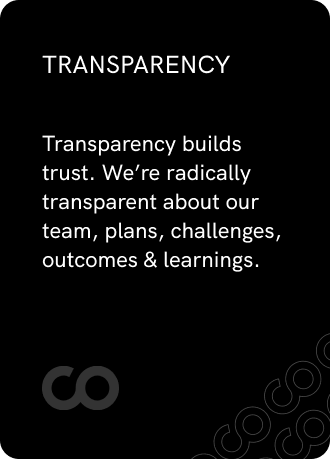
We transform companies!
Codewave is an award-winning company that transforms businesses by generating ideas, building products, and accelerating growth.
Frequently asked questions
DevOps consulting helps businesses automate workflows, improve CI/CD pipelines, and enhance collaboration between development and operations. It streamlines software delivery, increases system reliability, and ensures faster, error-free deployments.
DevOps eliminates deployment bottlenecks, automates manual processes, and improves system reliability. It helps teams push updates faster, reduces production failures, and ensures continuous monitoring for real-time issue detection.
DevOps automates configuration management, accelerates CI/CD pipelines, and optimizes resource utilization. It reduces human intervention, prevents misconfigurations, and ensures high system availability with proactive monitoring and self-healing infrastructure.
Automated testing, version control, and continuous monitoring detect issues early in development. This reduces production bugs, enforces security policies, and ensures stable, high-performance applications.
Yes, Cloud DevOps consulting services integrate security automation and compliance frameworks like HIPAA, PCI-DSS, and SOC 2. Infrastructure as Code (IaC) enforces standardized configurations, while audit logs track changes for regulatory adherence.
We design high-availability DevOps architectures with zero-downtime deployments and automated rollback mechanisms. Our pipelines minimize deployment failures, and our auto-scaling solutions handle traffic spikes efficiently.
We work with 15+ industries, including healthcare, finance, retail, and education. Our solutions ensure infrastructure security, automated compliance checks, and optimized performance for industry-specific workloads.
We use Terraform for infrastructure as code, Jenkins and GitHub Actions for CI/CD, Prometheus and Grafana for monitoring, and Kubernetes for container orchestration. Our tech stack minimizes downtime and maximizes resource efficiency.
As a DevOps consulting company, we integrate DevSecOps by embedding automated security scans in CI/CD pipelines. We use OWASP ZAP and Snyk for vulnerability detection and enforce IAM policies to prevent unauthorized access and security misconfigurations.
Yes, we build containerized, microservices-driven architectures with Kubernetes and serverless computing. We optimize workloads for AWS, Azure, and GCP, ensuring cost efficiency and high availability.
We create cost-efficient, scalable pipelines with lightweight CI/CD, automated deployments, and centralized monitoring. Our automation-first approach reduces manual effort, allowing startups to scale without infrastructure overhead.
Book an assessment with our experts. We analyze your infrastructure, identify bottlenecks, and implement DevOps solutions that improve deployment speed, security, and system stability.
Most in demand
Comprehensive Software Consulting Services

IT Architecture Services for Enterprises

Cloud Software Solutions

Automated Invoice Processing Cloud Service Solutions

Comprehensive Backend Development Services and Solutions

LMS Development Services for Modern Learning Needs

Database Migration Service for Enterprises

AI OCR Solutions for Accurate Document Processing

Enterprise Blockchain Development Services

Cross-Platform Mobile App Development Services

Custom Enterprise Application Development Services

Custom E-Commerce Solutions for Enterprises

Travel Technology Solutions and Services Management

Global Design and Innovation Consulting Services

LLM in Corporate Compliance and Risk Management

Services in Software Development

Travel Technology Solutions and Services

Generative AI Consulting and Strategy for Business Innovation

Application Operations and Management Services

Secure, Reliable Cloud Application Modernization Services

Global Design and Innovation Consulting Services

Enterprise Cloud Consulting & Implementation Services Solutions

Ecommerce Web Design & Development Services

Trusted, Unified Xamarin App Development Services You Need

Custom EHR/EMR Integration Services for Connected Healthcare

Cyber Security Consulting Services for Scalable Resilience

AI and Data Analytics Services Solutions

Enterprise App Development Services

Business Intelligence and Data Analytics Solutions

Convert Your Website into a Mobile App for Android and iOS

Managed Healthcare IT Services and Solutions

Custom .NET Software Development Services & Solutions

Website Design and SEO for Medical Practices and Doctors

Big Data Analytics Solutions & Services

IOT Product Development Services for Faster Decision Making

Cloud-Based E-commerce Solutions and Platforms

Custom Financial Software Development Solutions

Enterprise Automation Solutions and Services

Power Up Digital Change with Strategic Design Thinking Workshops

Design Thinking-Driven Strategic Digital Transformation Blueprint

Generative AI Development Platform

Information Technology Strategy and Consulting Services

Product Design and Development Services

Custom Responsive Web Design Services

Magento eCommerce Development and Design Services

Transportation and Logistics IT Services and Solutions

Decision Intelligence Strategy

Automation for Operational Efficiency

Digital Talent Transformation

Integrated CX And UX Design For Delight

Digital Transformation ROI Measurement

Digital Core Modernization

Cloud Migration Services

AI Accounting Software

Software Product Development Services

Decentralized Finance (DeFi) Development Solutions and Services

Startup Software Development Services

Django Development Company for Scalable Web Solutions

HIPAA Compliance and Advisory Services Solutions

Drupal Development Services

Business Analytics Services

Telemedicine Software Development Services

Support and Maintenance Services for Mobile and Web Applications

Cryptocurrency Development Services and Solutions

AI Testing Services / AI-Powered Testing Services

IT Infrastructure Services

ASP.Net Software Development Services

Retail IT Solutions and Services

Managed Application Services

Data Warehouse Services

Data Science Consulting

Agentic AI Product Design And Development Services

Healthcare Mobile App Development Services

CRM Consulting and Implementation Services

Custom Database Development Services and Solutions
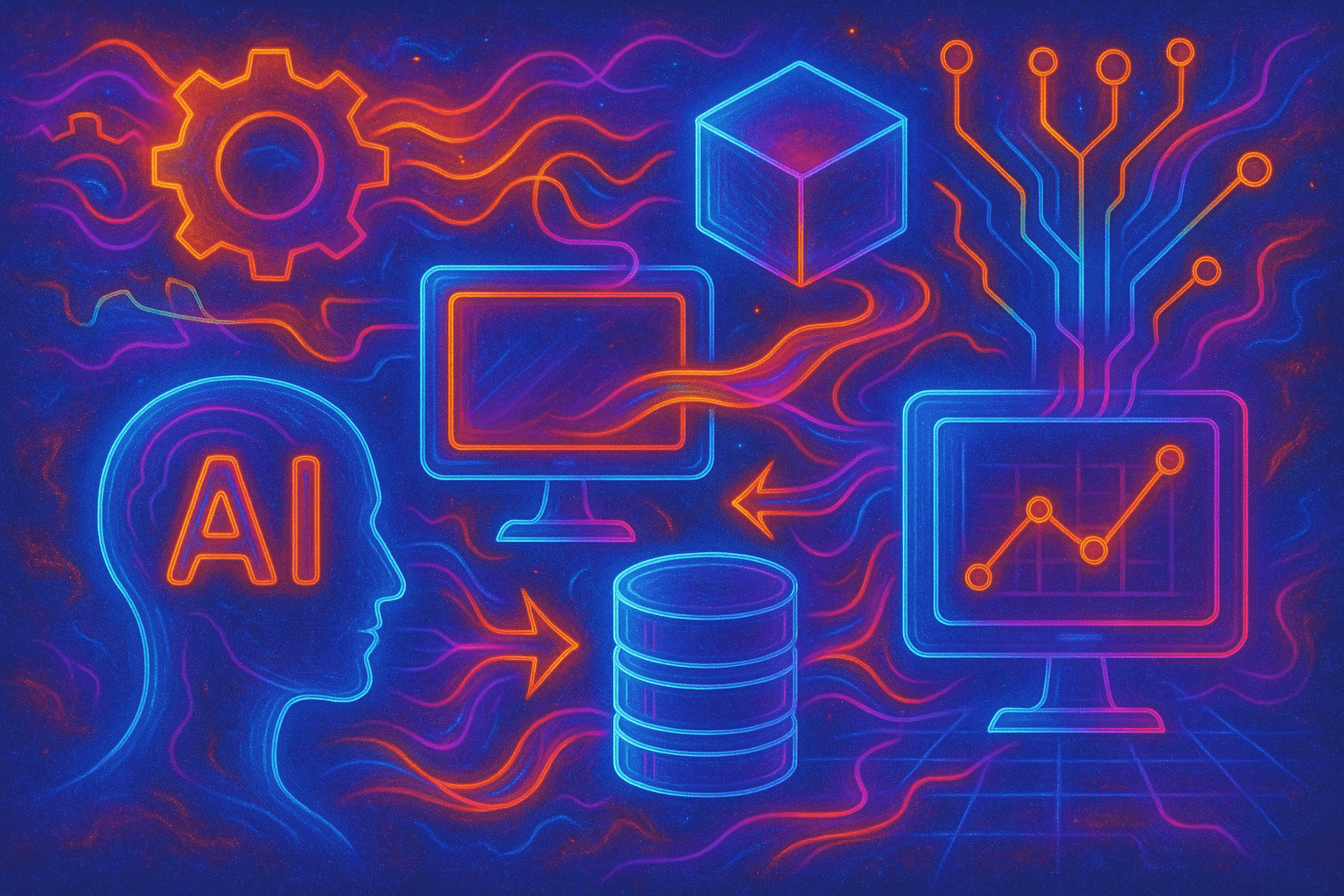
Transportation and Logistics Software Development Solutions

Secure Payment Gateway Integration Solutions

Data Management Services

Java Software Development Services

PHP Development Services

Fast, Scalable, Secure Node.js App Development

Power BI Consulting Services

IT Project Management Services

NFT Token Development Services

DevOps Consulting and Services

Web Data Mining Services

Front-End Development Services

Managed Services for E-commerce Success

Website Redesign Services for Strengthening Your Web Presence

Custom SaaS Development Services

Custom CMS Web Development Services

NFT Marketplace Development Services

Smart Contract Development Services

Oil and gas IT services

AI Audit for Startup Companies | Best Website Audits

PrivateGPT Development Services

Swift iOS App Development Services

Web3 Development Services Company

AI-Native Product Design and Development Services

Personalized Learning with AI for Education

Microsoft Dynamics 365 Customer Service with AI

Energy Management Software Solutions Platform

Human Machine Interface Software Development Service

Education Software Development Services

Retail Software Development Services and Solutions

DEX – Digital Employee Experience Software Services

Decentralized Exchange Development (DEX) Company

Offshore Software Testing Services

Backend Development Services and Solutions

Travel and Hospitality Software Development Services

Fintech Software Development Services

Data Visualization Consulting Services

Digital Solutions For Agriculture and Software Services

Payment Gateway and Software Development Services

B2B Travel Software and Booking

MEAN Stack Development Services

24/7 Managed NOC Services

Database Migration Service

Design-Led AI Consulting for SMEs and Startups

AI Solutions Development Services

P&C Insurance Software Solutions

MLOps Consulting Services

Generative AI Services and Solutions

Conversational AI Platform Development

AI and Analytics for Retail Solutions

Artificial Intelligence Video Chatbot Services

Digital-First Banking IT Services

Golang Development Services

MVP Development Services

eLearning Software Development

Agile Software Development Services

Data Warehouse Consulting and Management Services

IT Services Management Consultancy Services

Learning Management System Consulting Services

iOS App Development Services Company

Ecommerce Services

Marketing Automation and CRM Solutions

Industrial IoT Solutions and Services

Healthcare Data Analytics Solutions

Cryptocurrency Wallet Development

Digital Strategy Consulting Services

B2B Portal Development

Embedded Technology Innovation

Process Automation

XR Application Development

Artificial Intelligence and Machine Learning Consulting Services

Cloud Infrastructure

Blockchain Implementation

Flutter App Development

Angular Development

Mobile Application Testing Tools and Services

Penetration & Vulnerability Testing

QA Testing Services

Reactjs Development

Team Augmentation

Automation Testing

Web App / Portal Development

Python Development

IT Consulting

Custom Software Development

Branding

ReactNative App Development

Web and Mobile App UX – UI Design Services

UX & UI Design

Android App Development

Mobile App Development

Idea to Product

IoT Development

Data Analytics Development

GenAI Development

AI/ML Development

Design thinking

Process Automation

Digital Transformation

Customer Experience Design

























































